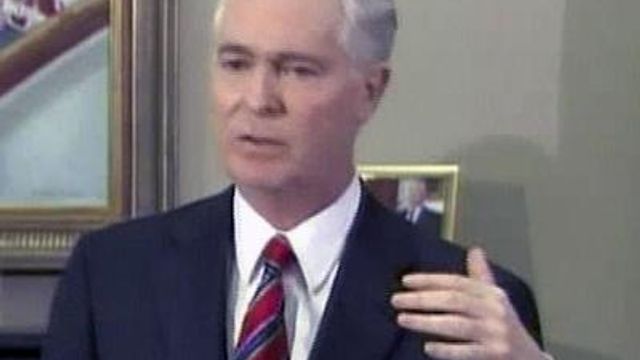RALEIGH, N.C. — An advocacy group for mentally ill patients and their families says it believes Gov. Mike Easley is trying to rewrite history with comments he made Tuesday about the state's 2001 reforms of the mental-health-care system.
Speaking to the media, Easley said he had reluctantly signed into law that year's House Bill 381, which decentralized the mental-health system to create a more cost-efficient one that supporters said would serve more patients at a lower cost and provide more choices in services.
The system has been struggling with problems and claims of abuse, however, and the reforms have been slow to bring change.
Easley said his administration and Carmen Hooker Odom, then secretary of the Department of Health and Human Services, "vigorously opposed it, because it was too broad with not enough accountability."
Odom, however, wrote in a November 2001 letter that she was presenting the new state plan "with pride and enthusiasm."
John Tote, executive director of the Mental Health Association in North Carolina, says that if Easley was "that against (the reforms)," he should have vetoed the bill.
"If you think something should be done differently, then you still need to step in and say, 'I'm going to veto this. Let's get it right, then bring it back to me,'" Tote said.
Easley was unavailable for comment Wednesday, but his spokeswoman, Renee Hoffman, said that the reforms had support from lawmakers (the bill passed 79-12 in the House and unanimously in the Senate) and that Easley did not think a veto would make a difference.
"With those overwhelming numbers, the governor is not going to veto legislation," she said. "The governor's going to pick his battles carefully."
"I'm not trying to say, 'I told you so,' but I know why I voted against it, and I don't recall Gov. Easley ever saying he was opposed to it at all," said former state Rep. Russell Capps, R-Wake, who opposed the bill. "In fact, my recollection was that he pushed it."
With the media highlighting the failures of the system, the governor now plans to push for new legislation – reforms that many advocates believe should have been proposed years ago.
Easley's proposed legislation would give his administration more authority and control over the mental-health system.
Tote said he believes Easley needs to make fundamental changes to the mental-health system, but he added that it will be up to the next administration to carry them out and, ultimately, fix the system.
Easley has vetoed eight bills since he took office, the first in November 2002. In 2004, the state House succeeded in overriding his veto of a controversial bill requiring local governments to pay advertisers to remove billboards. It stood, however, because the Senate never voted.






